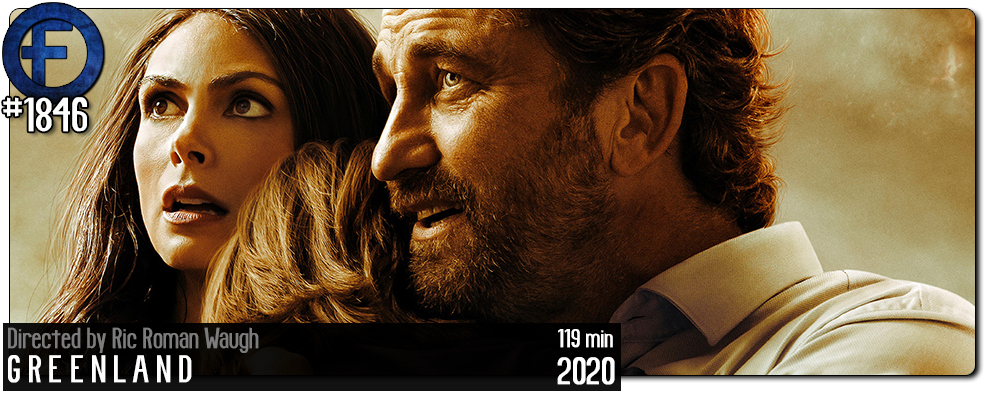Movie Review – Greenland
Principal Cast : Gerard Butler, Morena Baccarin, Roger Dale Ford, Scott Glenn, David Denman, Hope Davis, Andrew Bachelor, Merrin Dungey, Gary Weeks, Tracey Bonner, Claire Bronson, Madison Johnson, Holt McCallany.
Synopsis: A family struggles for survival in the face of a cataclysmic natural disaster.
********
Perennial B-movie hunk Gerard Butler commendably shoulders this Earth Versus Asteroid disaster flick, reteaming the star with his Angel Has Fallen director Ric Roman Waugh for Greenland, which offers strained Breakdown of Society motifs alongside an undercooked broken family coming back together trope. It’s essentially the new millennium’s Deep Impact, complete with a rioting populace, soul-searching battles with impending doom, countless television broadcast news clips showcasing off-camera destruction, and naturally a ratcheting sense of desperate tension as our heroes endeavour to survive the oncoming apocalypse.
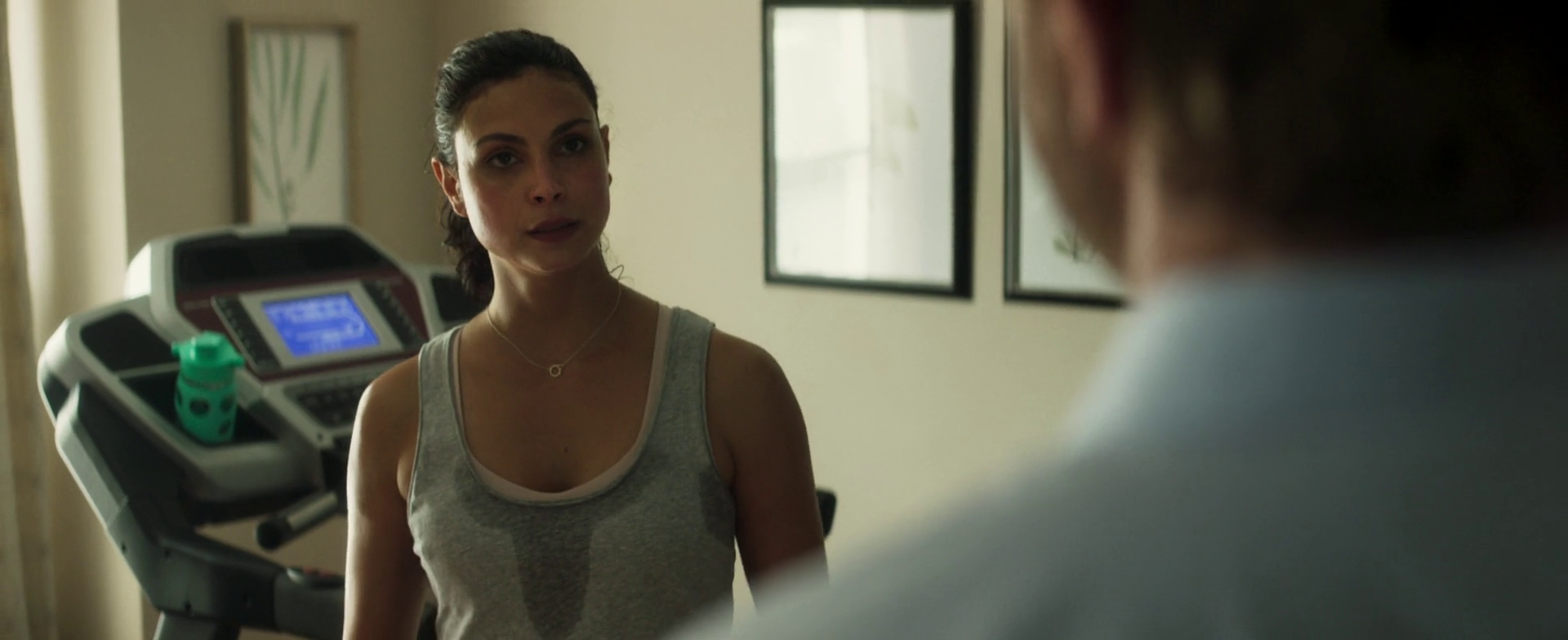
Greenland sits somewhere between Deep Impact and Armageddon for its seriousness with the premise. Mimi Leder’s dramatic destructo-opus favoured realism and pathos amidst the chaos of approaching disaster, as Elijah Wood and Leelee Sobieski outran a meteor strike on a motorbike. Michael Bay’s Armageddon, starring then action icon Bruce Willis, favoured the hysterical physics-defying antics of Hollywood blockbusterism, colour graded apocalypse porn writ large with memorable one-liners and cheesy theme songs betwixt Billy Bob Thornton’s overly earnest performance as a NASA boffin tasked with somehow saving the world. Greenland returns Earth to a collision course with a celestial traveller, approaching the decay of civilisation with a 2020 sense of nihilism and a distinct lack of self-awareness, instead focusing on a nuclear family’s desperate struggle to escape without the plot twist of “sending a team up to blow up the asteroid”.
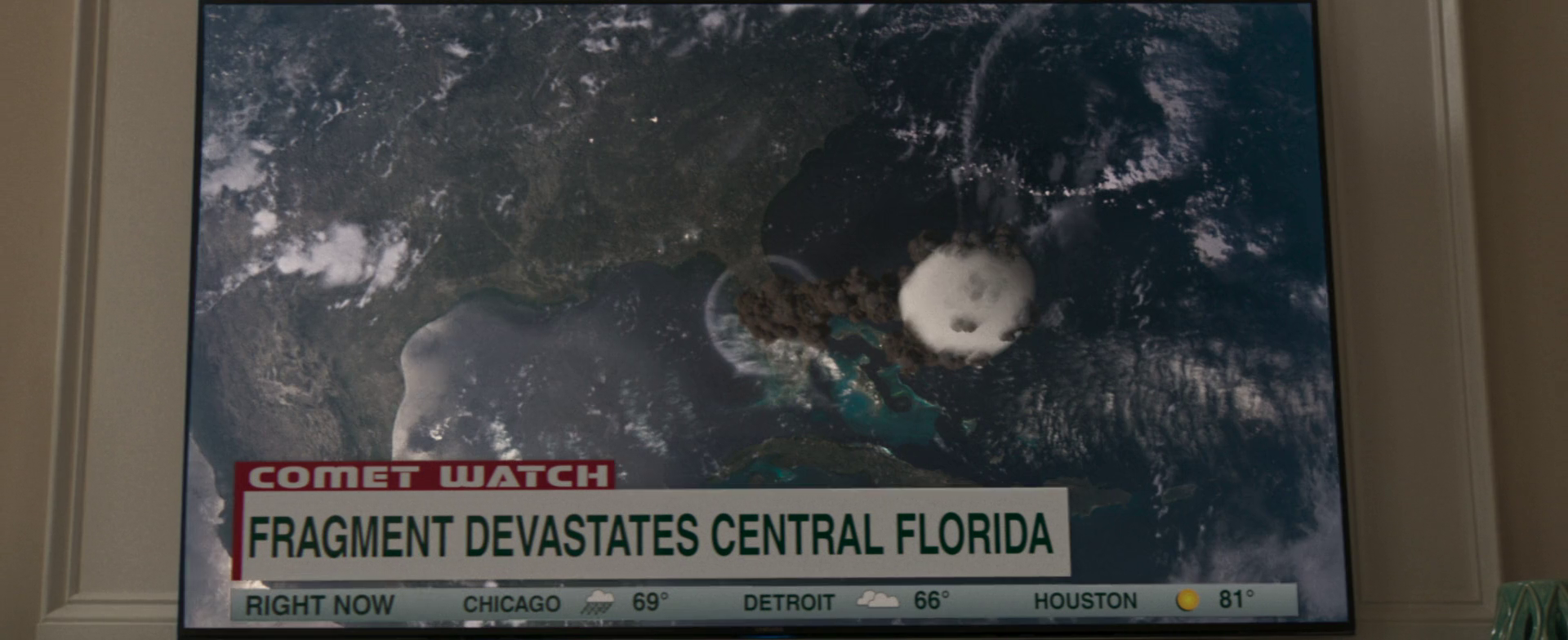
Butler plays Atlanta-based architect John Garrity, who is seeking reconciliation with his estranged wife Allison (Morena Baccarin – Deadpool) after an off-screen dalliance, while their young son, Nathan (Roger Dale Floyd) is seemingly oblivious to his parents’ problems. The Garrity’s and their neighbours gather around the television to watch the imminent impact of a segment of long-approaching comet Clarke land in the Atlantic Ocean. In actuality, the segment strikes Florida, wiping out countless lives and sending Earth’s population into shock. The Garrity’s are summoned by Presidential decree to a nearby military base, which they learn is to escape the much larger, extinction-level strike by Clarke’s larger mass, and save as much of humanity as is possible. As the news of Clarke’s apocalyptic approach breaks, social disorder breaks out and panic sets in, as John and Allison are separated by circumstance they eventually find their way to her fathers Kentucky farm – played by the wonderful Scott Glenn – and find a glimmer of hope in private pilots taking passengers to enormous bunkers located in Greenland.
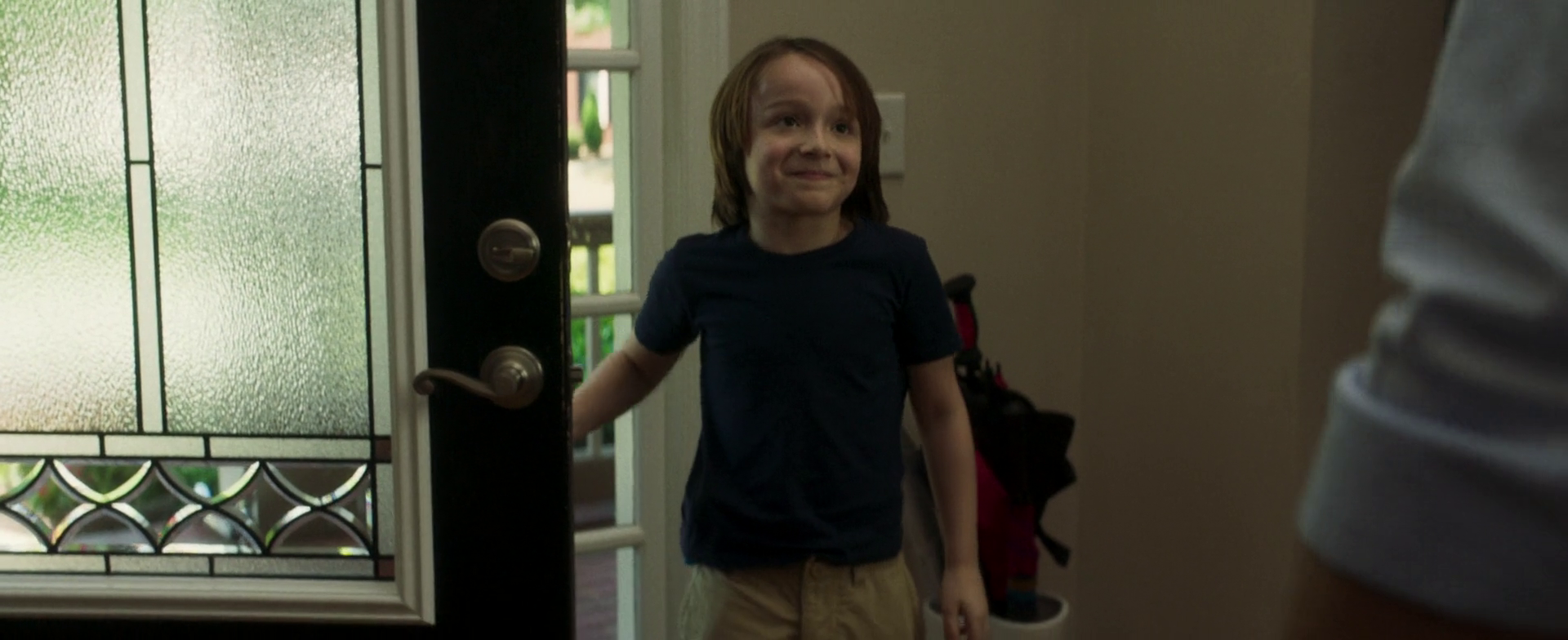
Written by Chris Sparling (Buried), Greenland’s age-old premise is filtered through a 21st Century mentality, the instant gratification age of information mixed with the Trumpian everyone-for-themselves social underpinning that’s perplexingly taken root in America’s social fabric. What might seem like an interesting tableau upon which to ground the Garrity’s marital woes turns out to be decidedly rote and soulless, with Butler’s indecipherable line delivery mangling what little chemistry he has with co-star Morena Baccarin – herself serviced by a script that calls upon her to either wail nonstop, fret nonstop, or look like she’s just discovered the cat shit in her shoe – and the actual landfall by the various chunks of the Clarke comet, broken up into conveniently more destructive cosmic flotsam, serves as the film’s only legitimate source of thrills.
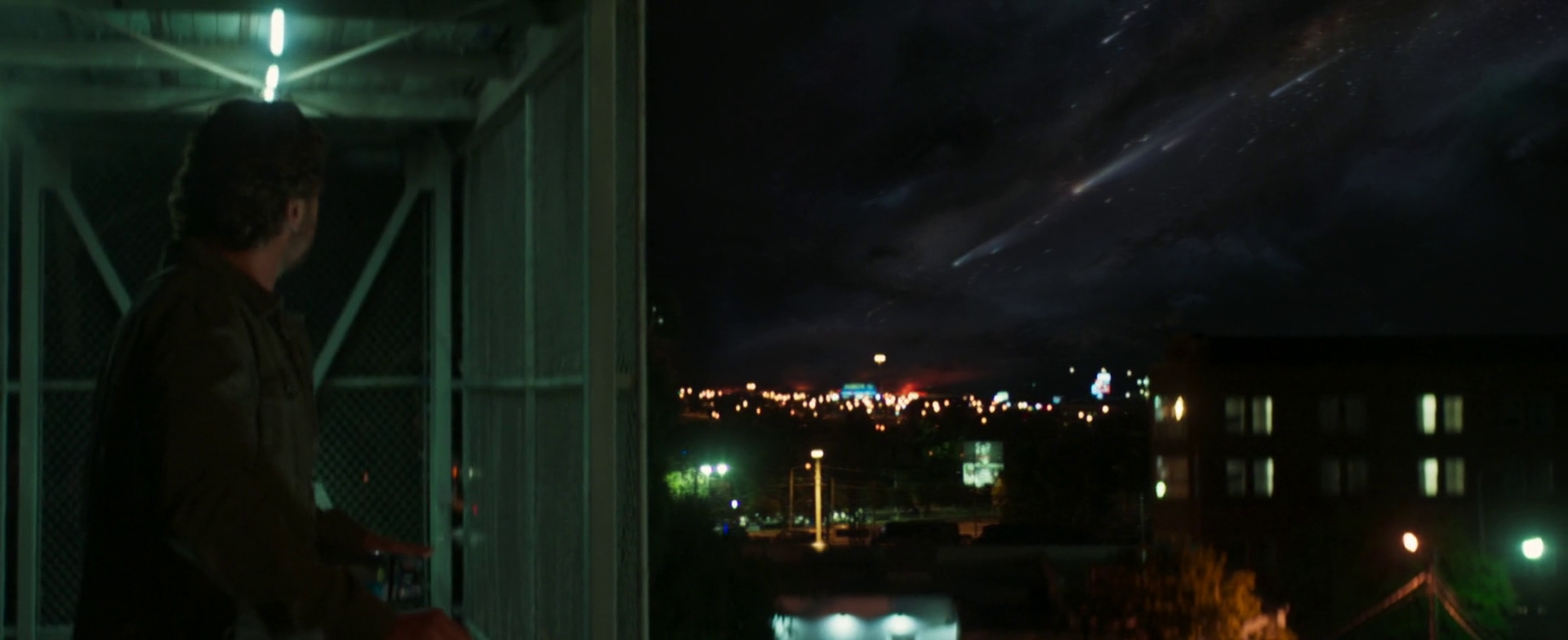
The films most annoying character is, naturally, the token child who continually forms the centralist of a lot of the plot twists – Nathan turns out to be diabetic, which prevents him being allowed onto the Government’s rescue programme, which means his parents have to resort to alternative measures to survive. Roger Dale Floyd isn’t helped by this script, it should be noted, but a performance of such extremes should be picked up well into production and toned right down. Colourful secondary characters, led by Scott Glenn as Allison’s father in a small but moving role (the man can manage more in a single line of dialogue than Butler can for the entire film, revealing the chasm of talent between the two) and the requisite military, neighbourly, creepily violent types populating these kinds of films flesh out the genre’s tropes and familiarities, sometimes effectively (a sequence in which Allison and Nathan are forced to locate some insulin in a damn hurry is particularly taut) and sometimes not (people smuggling in the back of a truck becomes a key sequence due to… racism, somehow?). On the whole, you find a lot of thing familiarly remixed in Greenland, although the success of the film’s parts hinges largely on Ric Roman Waugh’s deadpan direction.
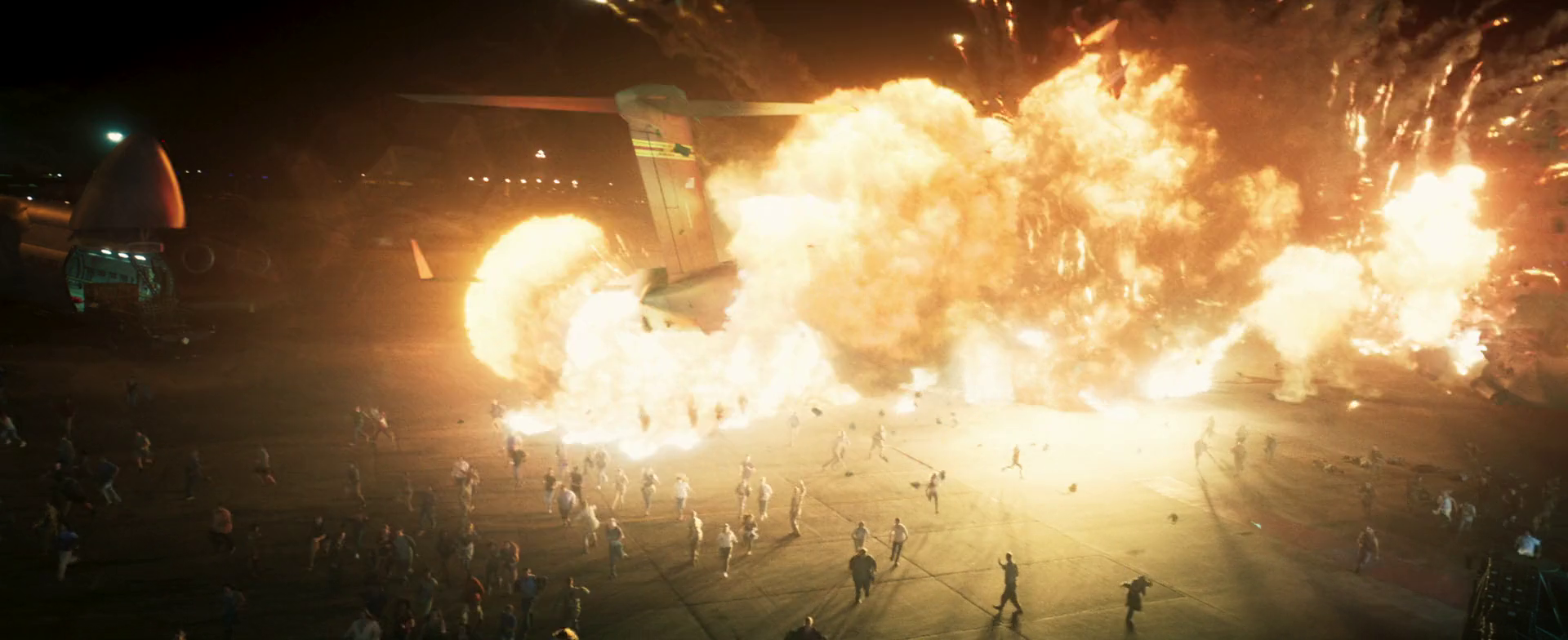
Disaster films tend to lean one of two ways: decidedly cheesy like Armageddon, or seriously dramatic like Deep Impact. Greenland grinds hard into the pelvis of dramatic overkill, taking itself way too seriously with characters that aren’t worth the effort, lacking a modicum of levity or relief from the constant pummelling of tension, which you kinda need if a film is going to take itself so seriously. There’s no comic relief, no funny, kooky friend character, nobody to anchor Butler’s bearded bear-man survivalist role here in any sense of reality, and as much as Greenland was never intended as a nyuk-fest, the resonance of the incumbent emotional wrangling works only as well as the audience is prepared to accept, and your mileage in that department may vary.
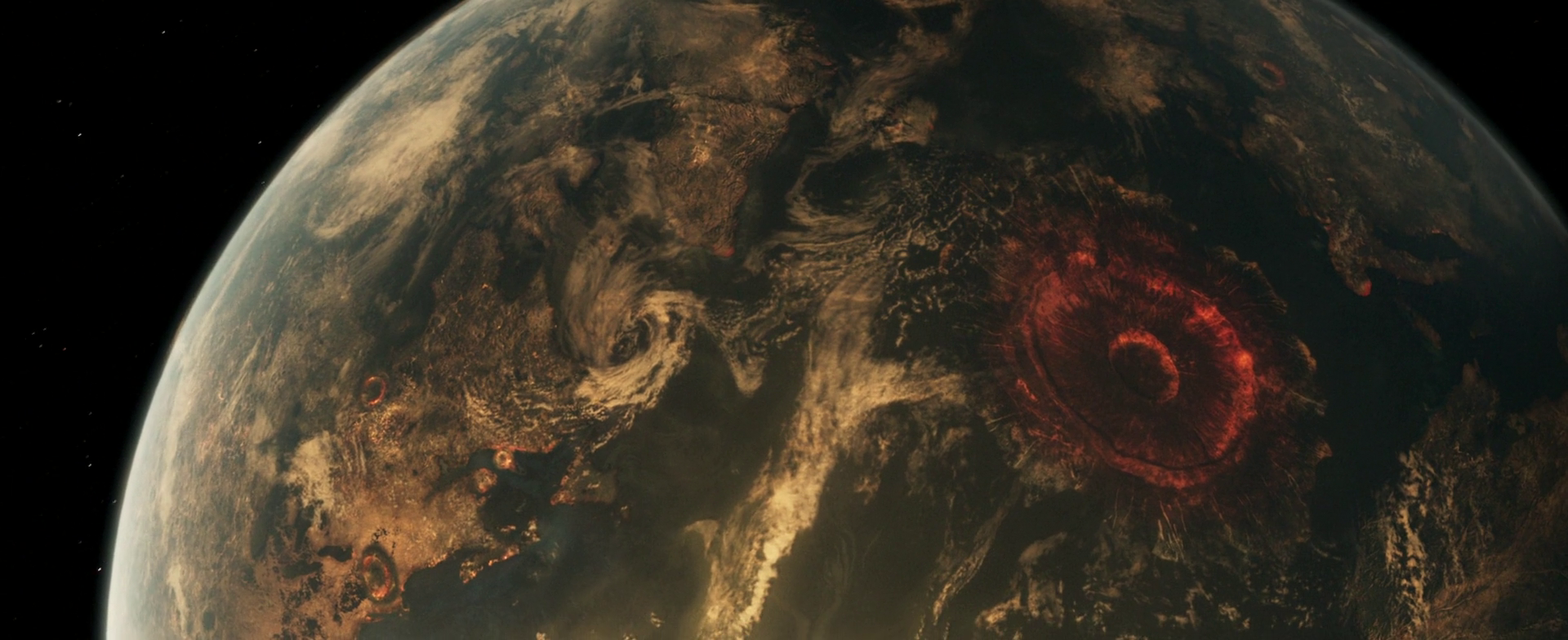
It’s not that there isn’t some salacious fun to be had as Planet Earth gets smacked three ways from sideways by its latest cosmic assailant, the omnipresent spectre of conflagration making for delightfully destructive viewing – even if some of the effects feel a little ropey and hidden by budgetary concerns (the final impact pretty much occurs on a computer monitor for less than a second) – and Waugh’s sturdy hand behind the camera makes a good fist of accomplishing a lot more than money might otherwise allow. I did enjoy Angel Has Fallen so he can direct action, but Greenland needed to be a $100m film instead of one made for a third that. As an audience member I wanted to be blown through the back of my cinema/loungeroom but…. well, nah. When I watch disaster films, I want to see disaster. Feel it. Experience it. Greenland takes the easy option of just having many of these Big Events occur on a TV screen somebody else is watching.
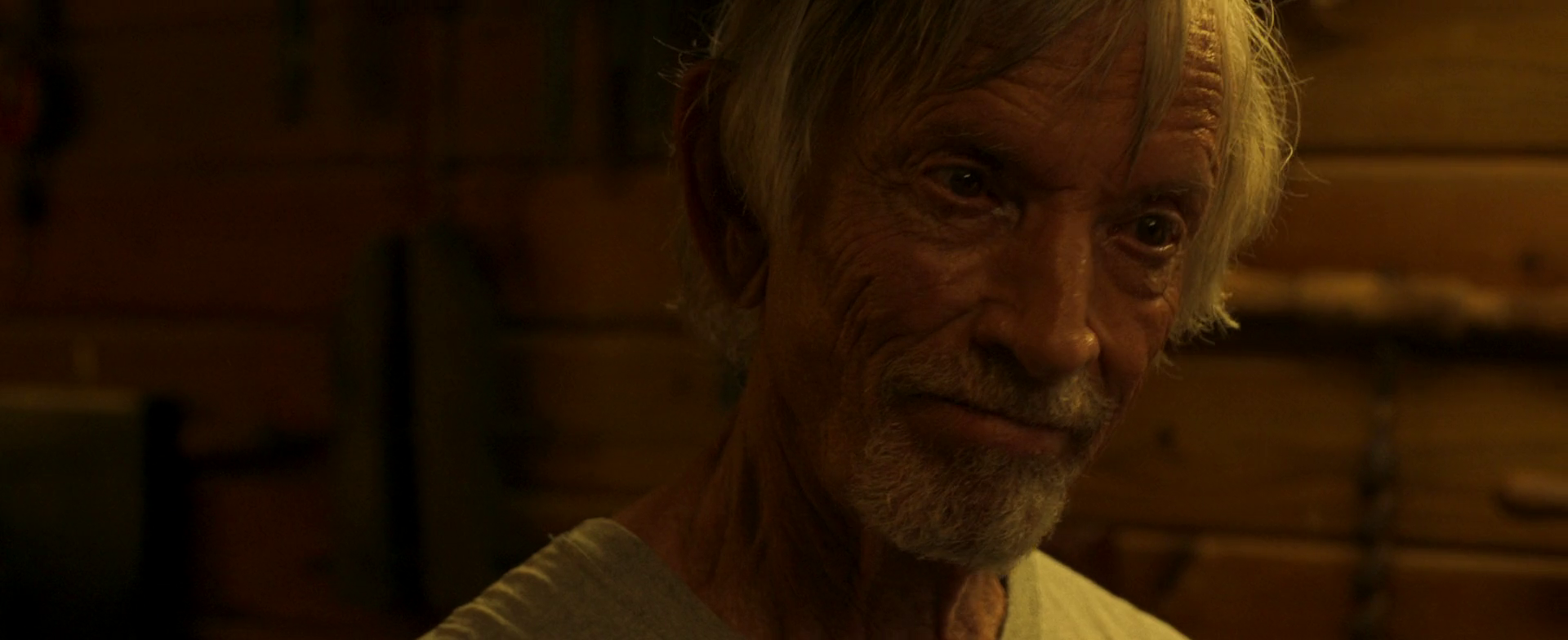
Undemanding cinema doesn’t come more valid than Greenland, a comfortably predictable disaster opus that remixes and regurgitates well worn genre plot points and symbolism (notably, there’s very little American hoo-rah here, which is a relief) with commendable and otherwise competent production value. There are moments of genuine pathos and warmth but there’s also a lot of slogging through eye-rolling contrivance and convenience, the through-the-eyes-of-a-family intimacy unable to balance against the grand-scale global threat in a way that pierces complacency for the audience. Overall, Greenland isn’t as clever as it thinks it is, and underwhelms without any unadulterated Roland Emmerich-cataclysm porn, but it’ll keep you engaged throughout its multitudinous sidebars and by the end you too can feel like you’ve traversed a continent to escape imminent destruction.


